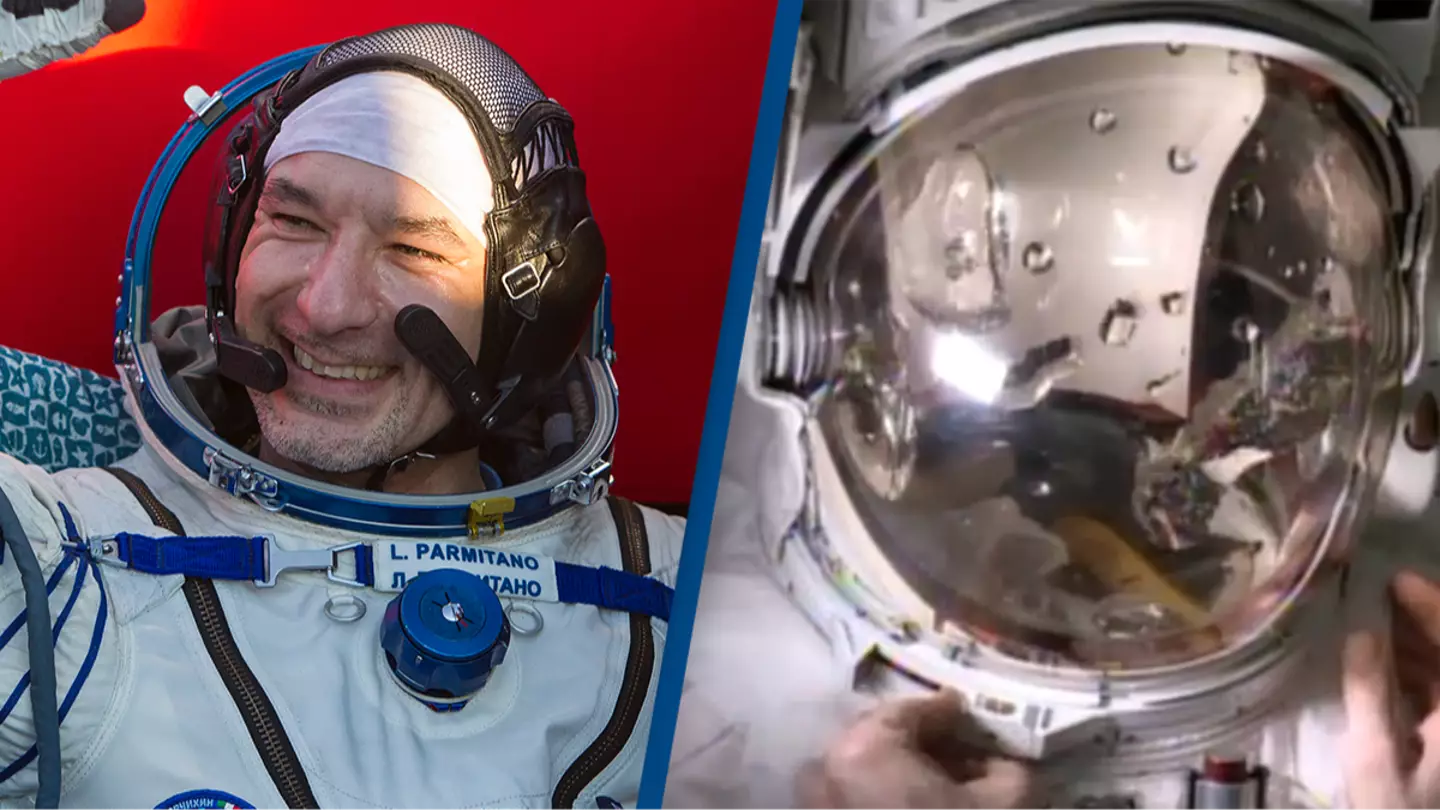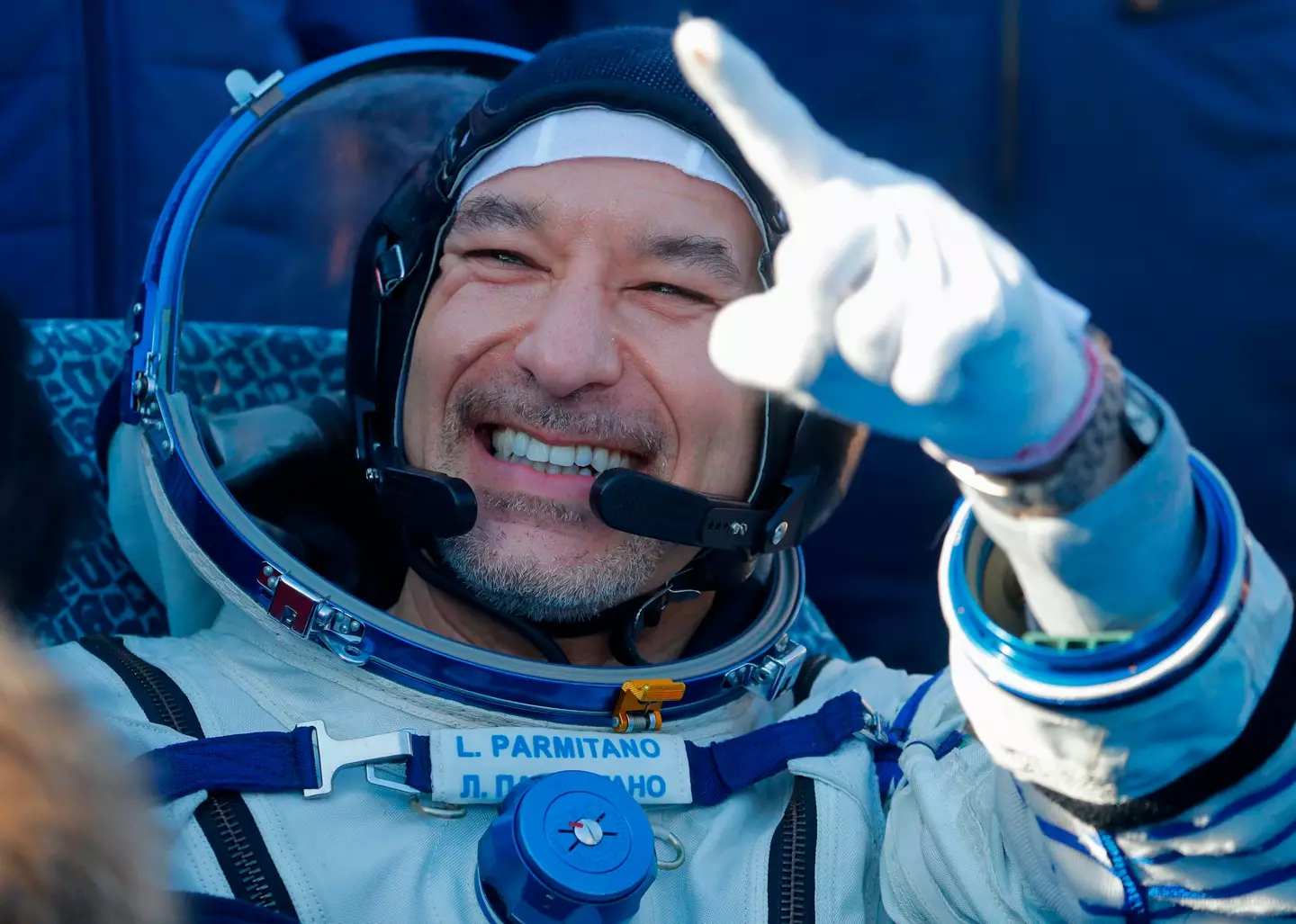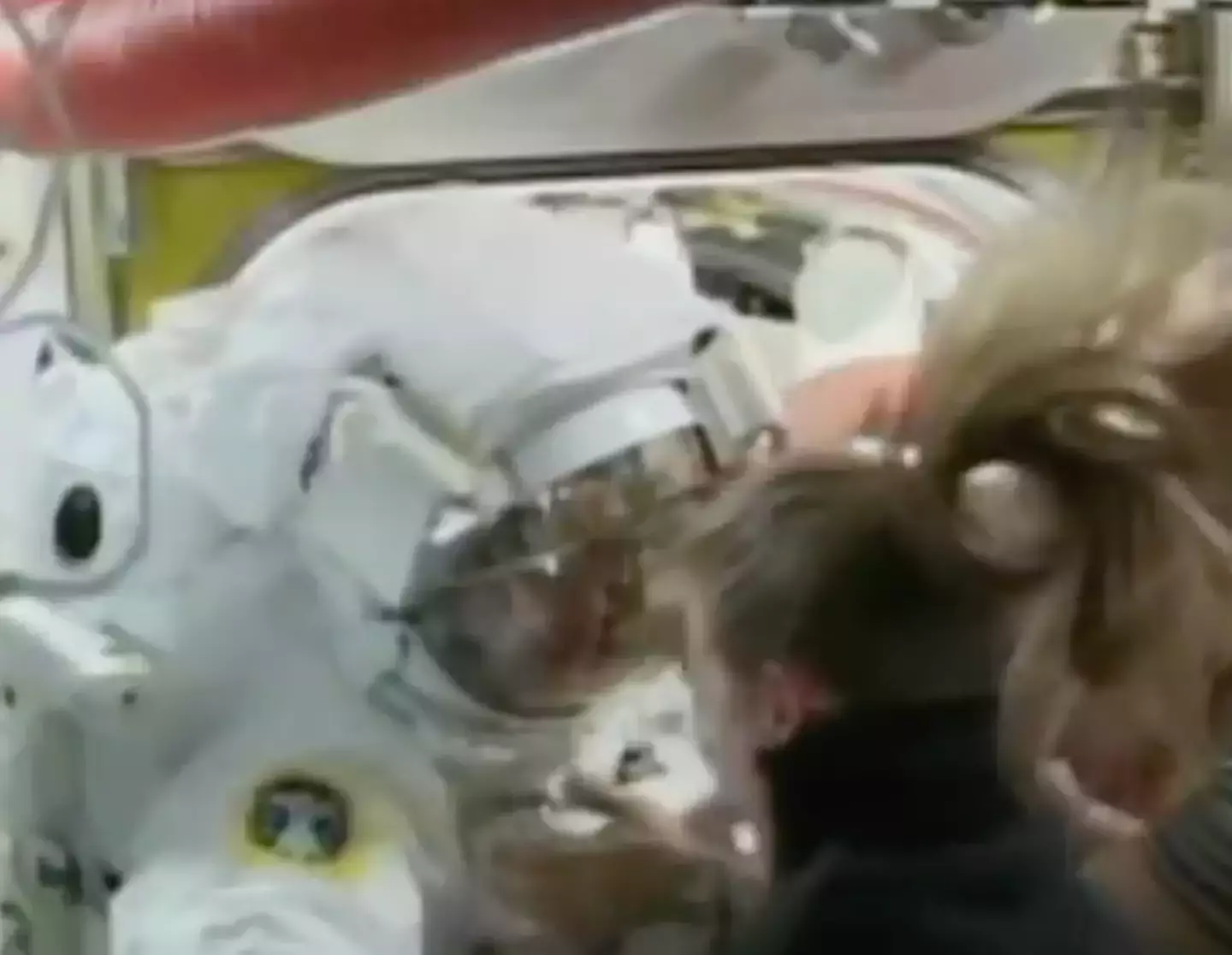
An astronaut who almost drowned in space was contemplating opening his helmet in a last-ditch attempt at survival.
Luca Parmitano had embarked on EVA 23, a six-hour space walk around the International Space Station, in July 2013.
But his helmet soon began filling with liquid, stopping him from being able to hear or see.
Advert
And while you'd not usually associate space with water - let alone drowning - Parmitano almost met a terrifying fate.
While working with cables outside the ISS, 250 miles (400 kilometers) above sea level, he was surprised by the 'unexpected sensation' of water at the back of his neck.
The Italian astronaut, who was working on behalf of the European Space Agency (ESA), struggled to communicate up to 1.5 liters of water - from a clogged pipe in the space suit - filled his helmet.
Parmitano explained: "My ability to see – already compromised by the water – completely vanishes, making my eyes useless.
Advert
"But worse than that, the water covers my nose – a really awful sensation that I make worse by my vain attempts to move the water by shaking my head."
He continued: "By now, the upper part of the helmet is full of water and I can't even be sure that the next time I breathe I will fill my lungs with air and not liquid."
Parmitano was instructed to go back to the airlock, but, unable to see in front of him, he no longer knew which direction he should be heading.

Advert
He decided to follow his safety cable back to the airlock, where he had to wait for repressurization to take place before he could take off the helmet.
And as he made his way back, the water continued to rise until it 'almost completely covered the front of [his] visor'.
Writing in his ESA blog, he described a back-up plan he'd thought up, explaining: "The only idea I can think of is to open the safety valve by my left ear: if I create controlled depressurisation, I should manage to let out some of the water, at least until it freezes through sublimation, which would stop the flow.
"But making a 'hole' in my spacesuit really would be a last resort."
Advert

Fortunately, Parmitano made it to the airlock, but then had to wait while his colleagues secured it from the outside before they could come in and free him.
He considered removing his helmet, despite it being a risky move.
He reasoned: "I know that if the water does overwhelm me I can always open the helmet.
Advert
"I’ll probably lose consciousness, but in any case that would be better than drowning inside the helmet."
Fortunately, he was freed from his space suit in time, returning back to Earth shortly after. The six-hour space walk was cut short after one hour.
Looking back on the experience, Parmitano described space as a 'harsh, inhospitable frontier', adding: "We are explorers, not colonizers. The skills of our engineers and the technology surrounding us make things appear simple when they are not, and perhaps we forget this sometimes. Better not to forget."
Topics: International Space Station, Science, Space